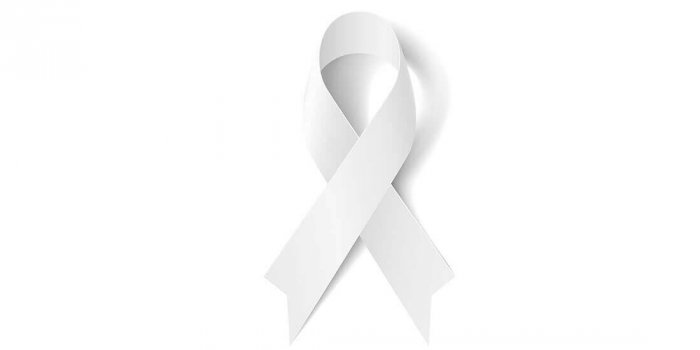Western Australia has become the latest State to release respectful relationships information to its schools with new teaching resources made available online this week for White Ribbon Day. Wednesday 25 November was White Ribbon Day – a day to raise awareness of a national, male led campaign to end men’s violence against women. NSW and Victoria have already committed to implementing domestic violence and respectful relationships education in their respective curriculums at the beginning of 2016.
Background
In June this year the Council of Australian Governments (COAG) agreed to take urgent collective action to reduce violence against women and children and created the COAG Advisory Panel of Reducing Violence against Women and their Children. The Panel comprises eleven members including Ms Rosie Batty 2015 Australian of Year and domestic violence campaigner.
In September, Rosie Batty attended a COAG meeting to ask all State and Territory leaders to commit to delivering compulsory domestic violence prevention lessons, following in the footsteps of NSW and Victoria.
Respectful relationships toolkit
As we have discussed in previous School Governance articles, NSW and Victoria have both committed to including compulsory classes on respectful relationships and domestic violence in their syllabuses from Term 1 2016.
In July NSW Education Minister Adrian Piccoli announced that from 2016 the NSW Years 7-10 PDHPE syllabus will include specific lessons on domestic violence identification and prevention and respectful relationships. This week, the Board of Studies, Teaching & Educational Standards (the BOSTES) released a PDHPE teacher toolkit for implementing content relating to the prevention of domestic violence.
The toolkit was developed following the collaboration and involvement of a number of organisations including the Association of Independent Schools NSW (AIS NSW), the Catholic Education Commission NSW, Domestic Violence NSW and the National Association for Prevention of Child Abuse and Neglect (NAPCAN).
Key features of the teacher toolkit include:
- frequently asked questions including a breakdown of the amendments to the syllabus and the impetus for change;
- definitions of domestic and family abuse;
- signs and symptoms of abuse;
- suggested resources for teaching the syllabus;
- support available for teachers;
- sample activities; and
- research and reference materials.
The toolkit is available on the BOSTES website and is a great resource for all schools in addressing issues of family and domestic abuse.
WA follows in the shadow of other States
Yesterday the Western Australian Government launched its Youth Say No! campaign to raise awareness among young people about family and domestic violence and to educate them about respectful relationships. Child Protection Minister Helen Morton said that the campaign was developed to help young people recognise:
- unacceptable attitudes and behaviours;
- family and domestic violence; and
- dating violence;and to also teach students how to support a friend if they were being abused.
The launch included a refreshed Youth Say No! website and the addition of online teaching resources aimed at helping teachers and school leaders embed respectful relationships education into their school’s curriculum. The campaign was reportedly developed in consultation with Perth high school students and is set to be rolled out to primary schools as well.
It is interesting to note that Western Australia, unlike NSW and Victoria, has not incorporated compulsory lessons on domestic violence prevention and awareness into the State curriculum. The Youth Say No! website contains generalised information about domestic violence and respectful relationships but does not contain State-specific resources for teachers.
That is, the website’s ‘For teachers’ section merely links to the Victorian Department of Education and Training’s document on building respectful relationships which provides a set of sequential teaching activities to educate secondary students about gender, violence and respectful relationships. Without amending the State’s curriculum or specific syllabuses, it is unclear how the Western Australian Government intends schools to incorporate these lessons.
What about the other States and Territories?
South Australia implements a State-wide scheme through Sexual Health Information Networking and Information (SHine SA) who provide a range of services to support schools in implementing a whole school approach to relationships and sexual health education. In South Australia, SHine SA has a Memorandum of Operational Collaboration with the Department for Education and Child Development (DECD) to support schools by increasing the confidence and capacity of teachers, counsellors and support staff to facilitate a consistent and comprehensive education program. Again, while there are resources available for South Australian schools to include domestic violence education content in their teaching plans, there is no requirement in the State’s curriculum to do so.
White Ribbon Day
Many of these recent developments in domestic violence education have been timed to coincide with yesterday’s White Ribbon Day. The campaign works primarily through prevention initiatives involving awareness raising and education and coordinates programs in schools across the country. White Ribbon’s ‘Breaking the Silence’ Schools Program is a professional learning program available to all school principals and teachers to support them in embedding models of respectful relationships in school culture and classroom activities.
Yesterday was also International Day Against Violence Against Women marking the beginning of what is known as 16 Days of Activism Against Gender-Based Violence. The next two weeks provide an opportunity for schools to organise events to raise awareness in their school community about domestic and family violence. The 16 days will conclude on 10 December on International Human Rights Day.


